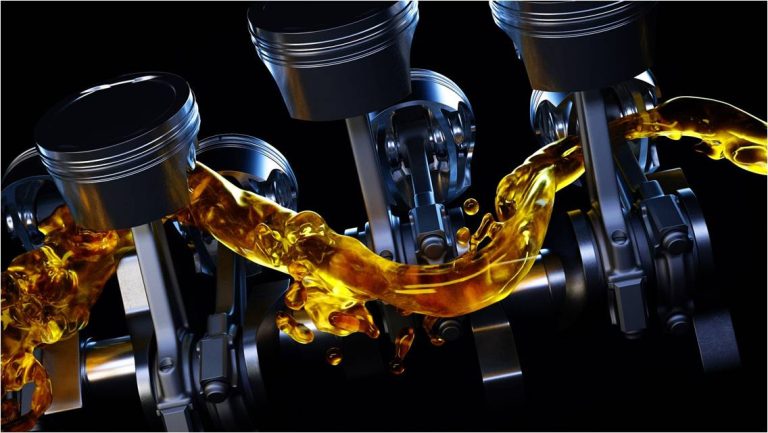Table of Contents
Understanding the Role of Gasoline engine oil in Vehicle Performance
Gasoline engine oil, often referred to as motor oil, is a critical component in the operation and maintenance of any gasoline-powered vehicle. It plays a pivotal role in ensuring the smooth performance of the engine, extending its lifespan, and ultimately, enhancing the overall efficiency of the vehicle. Understanding the role of gasoline engine oil in vehicle performance is essential for any car owner or enthusiast.
Gasoline engine oil is a specially formulated lubricant designed for internal combustion engines. It is primarily composed of base oils and a variety of additives, each serving a specific purpose. The base oils, which make up about 75-90% of the total composition, provide the necessary lubrication to reduce friction between the engine’s moving parts. The remaining 10-25% consists of additives that enhance the oil’s performance by inhibiting oxidation, reducing wear, and preventing the build-up of sludge and other harmful deposits.
The primary function of gasoline engine oil is to lubricate the engine’s moving parts. As the engine operates, its components move at high speeds, generating a significant amount of heat due to friction. Without proper lubrication, this heat can cause severe damage to the engine, leading to costly repairs or even complete engine failure. By forming a thin, protective layer between these moving parts, gasoline engine oil reduces friction, thereby minimizing wear and tear and preventing overheating.
In addition to lubrication, gasoline engine oil also serves as a Coolant. While the vehicle’s cooling system primarily manages engine temperature, it cannot reach certain parts of the engine. Here, the engine oil steps in, absorbing and dispersing heat from these areas to prevent overheating. This dual role of lubrication and cooling helps maintain optimal engine performance and efficiency.
Another crucial role of gasoline engine oil is cleaning. As the oil circulates through the engine, it picks up various contaminants and debris that can hinder engine performance. These include combustion byproducts, microscopic metal particles, and dirt. The oil carries these impurities to the oil filter, where they are trapped and prevented from re-entering the engine. This cleaning function helps maintain the engine’s cleanliness, ensuring smooth operation and preventing potential damage.
Lastly, gasoline engine oil also provides a protective barrier against corrosion. Combustion processes within the engine can produce acidic byproducts that can corrode engine parts over time. The additives in engine oil neutralize these acids, preventing corrosion and prolonging the engine’s lifespan.
In conclusion, gasoline engine oil plays a multifaceted role in vehicle performance. It not only lubricates the engine’s moving parts to reduce friction and wear but also cools the engine, cleans contaminants, and protects against corrosion. Regular oil changes are therefore crucial to maintain these benefits and ensure the longevity and efficiency of your vehicle’s engine. Understanding the role and importance of gasoline engine oil is a fundamental aspect of vehicle maintenance and care.
The Science Behind Gasoline Engine Oil: How Does It Work?
Gasoline engine oil, commonly referred to as motor oil, is a crucial component in the operation of a vehicle’s engine. It is a lubricant composed of base oils and various additives, designed to perform a multitude of functions that contribute to the longevity and efficiency of an engine. Understanding the science behind gasoline engine oil and how it works can provide valuable insight into the importance of regular vehicle maintenance.
The primary role of gasoline engine oil is to reduce friction between the moving parts of an engine. As the engine operates, its components constantly move against each other, generating heat due to friction. This heat can cause wear and tear on the engine parts, leading to decreased performance and potential engine failure. Gasoline engine oil forms a thin, lubricating layer between these parts, reducing friction and consequently, the heat produced. This lubrication helps to prolong the life of the engine and maintain its optimal performance.
In addition to lubrication, gasoline engine oil also serves as a coolant. While the engine’s cooling system is primarily responsible for managing heat, approximately 10% of this task falls to the engine oil. It absorbs excess heat from the engine’s components and redistributes it, preventing overheating and potential damage.
Gasoline engine oil also plays a vital role in keeping the engine clean. As the oil circulates through the engine, it picks up various contaminants and debris that have accumulated. These impurities are then transported to the oil filter where they are trapped, preventing them from causing damage to the engine. This cleaning function of the engine oil helps to maintain the efficiency of the engine and prevent potential problems.
Furthermore, gasoline engine oil provides a protective barrier against corrosion. Combustion processes within the engine can produce acidic by-products that can corrode engine parts. The additives in gasoline engine oil neutralize these acids, preventing corrosion and prolonging the life of the engine.
The effectiveness of gasoline engine oil, however, is not indefinite. Over time, the oil’s properties can degrade due to heat, contamination, and chemical reactions. This degradation can reduce the oil’s ability to lubricate, cool, clean, and protect the engine. As such, regular oil changes are necessary to ensure the continued performance of these functions.
The frequency of oil changes can depend on several factors, including the type of oil used, the age and make of the vehicle, the driving conditions, and the vehicle manufacturer’s recommendations. Generally, it is advised to change the oil every 3,000 to 5,000 miles. However, advancements in oil technology have led to the development of synthetic oils that can last up to 15,000 miles before needing a change.

In conclusion, gasoline engine oil is a multifunctional substance that plays a crucial role in the operation and maintenance of a vehicle’s engine. It reduces friction, cools engine parts, cleans contaminants, and protects against corrosion. Regular oil changes are necessary to maintain these functions and ensure the longevity and efficiency of the engine. Understanding the science behind gasoline engine oil and its functions can underscore the importance of regular vehicle maintenance and contribute to more informed decisions regarding vehicle care.
Decoding the Mechanics of Gasoline Engine Oil: Its Function and Importance
Gasoline engine oil, often referred to as motor oil, is a crucial component in the operation of a vehicle. It is a lubricant composed of base oil and various additives, specifically designed to protect and enhance the performance of engines. Understanding the mechanics of gasoline engine oil, its function, and importance, can provide valuable insights into the maintenance and longevity of a vehicle.
The primary function of gasoline engine oil is to reduce friction between the moving parts of an engine. As the engine operates, its components constantly move against each other, generating heat due to friction. This heat can cause wear and tear on the engine parts, leading to decreased performance and potential engine failure. Gasoline engine oil forms a thin, lubricating layer between these moving parts, reducing friction and the associated heat. This lubrication helps to prolong the life of the engine, ensuring it operates smoothly and efficiently.
In addition to lubrication, gasoline engine oil also serves as a coolant. While the engine’s cooling system primarily manages heat, it cannot reach all the engine’s nooks and crannies. The oil, however, circulates throughout the engine, absorbing excess heat from areas the cooling system cannot reach. This dual role of lubrication and cooling helps to maintain the engine’s temperature, preventing overheating and potential damage.
| Logo | Products |
| www.mogenoils.com/contact/ | Lubricant |
Gasoline engine oil also plays a vital role in keeping the engine clean. As the oil circulates, it picks up and carries away dirt and debris that have entered the engine. These contaminants, if left unchecked, can cause significant damage to the engine. The oil transports these particles to the oil filter, where they are trapped and removed from the system. This cleaning function helps to maintain the engine’s health and efficiency.
Furthermore, gasoline engine oil provides a protective barrier against corrosion. Combustion processes within the engine can produce acidic by-products that can corrode engine parts. The oil neutralizes these acids, preventing corrosion and prolonging the life of the engine.
However, it’s important to note that gasoline engine oil doesn’t last forever. Over time, the oil breaks down and loses its effectiveness due to the high temperatures within the engine. The additives in the oil, designed to enhance its performance, also get depleted over time. This is why regular oil changes are crucial. Replacing old, degraded oil with fresh oil ensures the engine continues to benefit from effective lubrication, cooling, cleaning, and protection against corrosion.
In conclusion, gasoline engine oil is a vital component in the operation and maintenance of a vehicle’s engine. It serves multiple functions, including reducing friction between moving parts, cooling the engine, cleaning away dirt and debris, and protecting against corrosion. Regular oil changes are essential to maintain these benefits and ensure the longevity and efficiency of the engine. Understanding the mechanics of gasoline engine oil underscores its importance and can encourage vehicle owners to prioritize regular oil changes as part of their vehicle maintenance routine.




